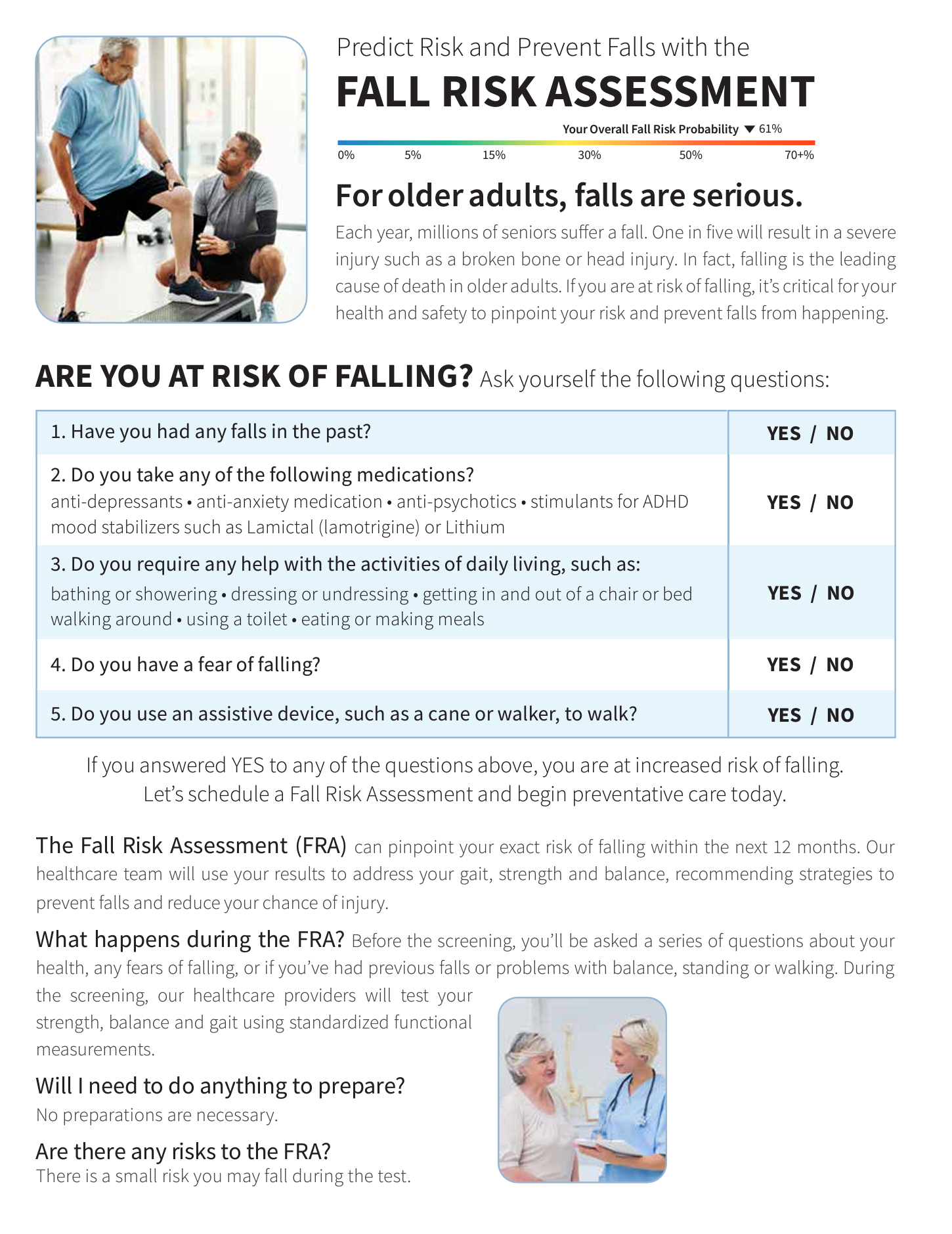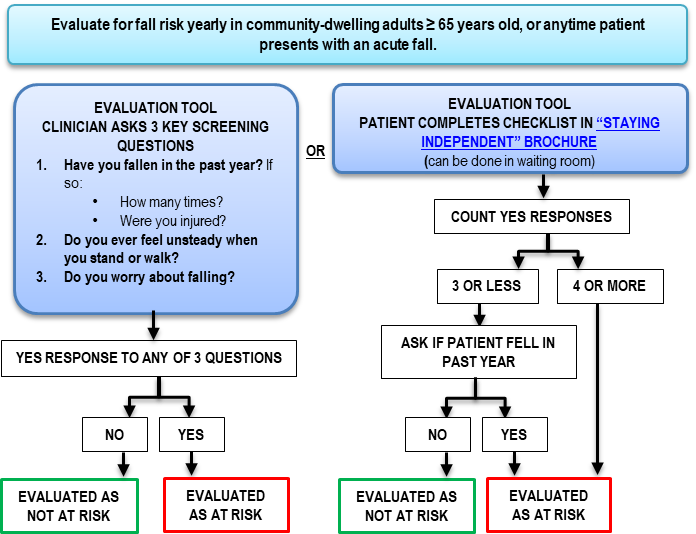Some Ideas on Dementia Fall Risk You Should Know
Some Ideas on Dementia Fall Risk You Should Know
Blog Article
Not known Factual Statements About Dementia Fall Risk
Table of ContentsDementia Fall Risk Can Be Fun For AnyoneThe Best Guide To Dementia Fall Risk6 Simple Techniques For Dementia Fall RiskHow Dementia Fall Risk can Save You Time, Stress, and Money.Dementia Fall Risk for Dummies
The FRAT has three areas: drop threat condition, threat factor list, and action strategy. A Loss Risk Condition consists of information about history of current falls, drugs, mental and cognitive condition of the person - Dementia Fall Risk.If the person ratings on a risk aspect, the matching variety of points are counted to the individual's fall threat rating in package to the much best. If a person's autumn threat rating completes 5 or greater, the person goes to high threat for falls. If the patient scores only four points or lower, they are still at some threat of falling, and the nurse ought to utilize their finest professional analysis to take care of all fall risk factors as part of an alternative care strategy.
These conventional techniques, in general, help develop a risk-free environment that reduces accidental drops and defines core preventative actions for all patients. Signs are important for patients in jeopardy for drops. Doctor require to recognize who has the condition, for they are in charge of carrying out activities to promote client safety and protect against falls.
Rumored Buzz on Dementia Fall Risk
Wristbands ought to consist of the client's last and first name, day of birth, and NHS number in the UK. Details ought to be printed/written in black against a white history. Just red color ought to be used to indicate special person status. These recommendations are regular with existing growths in patient recognition (Sevdalis et al., 2009).
Products that are also far may call for the patient to get to out or ambulate unnecessarily and can potentially be a hazard or add to falls. Helps prevent the patient from going out of bed with no aid. Nurses respond to fallers' call lights faster than they do to lights launched by non-fallers.
Visual impairment can substantially cause falls. Hip pads, when worn appropriately, may reduce a hip crack when fall takes place. Maintaining the beds closer to the flooring minimizes the danger of drops and severe injury. Placing the cushion on the flooring significantly decreases loss danger in some medical care setups. Reduced beds are developed to reduce the distance an individual falls after moving out of bed.
Not known Factual Statements About Dementia Fall Risk
Individuals who are high and with weak leg muscle mass who attempt to rest on the bed from a standing placement are likely to drop onto the bed because it's also low for them to decrease themselves safely. Likewise, if a high person attempts to get up from a reduced bed without assistance, the patient official statement is most likely to drop back down onto the bed or miss the bed and fall onto the flooring.
They're developed to promote timely rescue, not to avoid drops from bed. Apart from bed alarms, boosted supervision for high-risk patients also might help avoid falls.

People with a shuffling stride increase fall opportunities dramatically. To minimize loss danger, shoes ought to be with a little to no heel, slim soles with slip-resistant tread, and sustain the ankle joints. Encourage patient to use nonskid socks find out this here to stop the feet from gliding upon standing. However, encourage clients to wear appropriate, well-fitting shoesnot nonskid socks for motion.
The Dementia Fall Risk Ideas
In a study, homes with ample lighting report fewer drops (Ramulu et al., 2021). Renovation in lighting at home may lower autumn prices in older grownups.

Caretakers work for guaranteeing a safe, protected, and secure atmosphere. Studies showed extremely low-certainty evidence that sitters lower fall danger in severe treatment medical facilities and just moderate-certainty that options like video tracking can minimize caretaker usage without increasing loss danger, suggesting that caretakers are not as valuable as originally thought (Greely et al., 2020).
Examine This Report about Dementia Fall Risk

Enhanced physical fitness lowers the danger for falls and limits injury that is suffered when fall transpires. Land and water-based exercise programs may be similarly helpful on balance and stride and thereby lower the danger for drops. Water workout may add a favorable advantage on equilibrium and gait for women 65 years and older.
Chair Increase Exercise is a straightforward sit-to-stand exercise that assists strengthen the muscles in the upper legs and buttocks and enhances movement and freedom. The goal is to do Chair Surge workouts without using hands as the client comes to be more powerful. See resources area for a thorough direction on just how to carry out Chair Surge workout.
Report this page